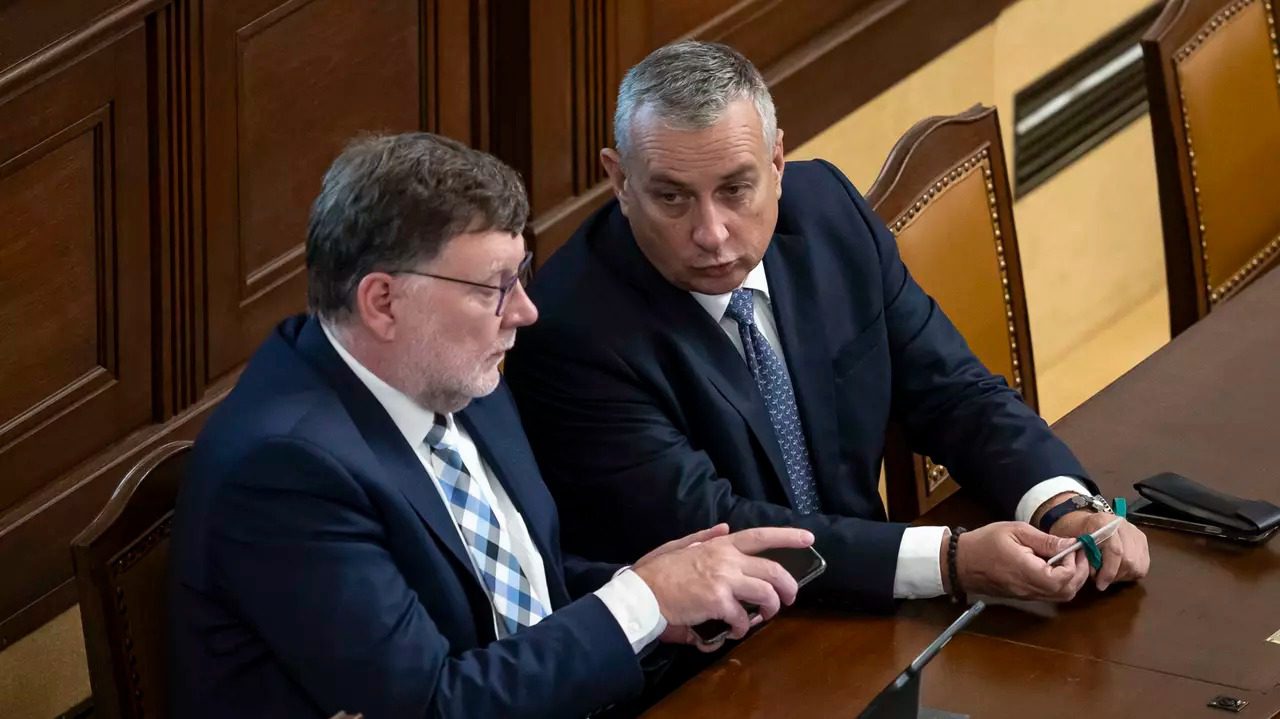The government has managed to find additional savings that will help keep this year’s state budget deficit below 300 billion Czech koruna, according to Zbyněk Stanjura, the head of the state treasury (ODS). It is almost certain that the cabinet will save over ten billion just on operational expenses.
Individual ministers have been cutting these expenses in their departments for several months. They aim to save additional billions on subsidies and unrealized investment projects.
“In the area of operational expenses alone, the Ministry of Finance expects savings of more than ten billion for the whole year,” said Petra Vodstrčilová, a spokesperson for the ministry.
The goal is to adhere to the planned budget deficit of 295 billion for this year. – Petra Vodstrčilová, spokesperson for the Ministry of Finance
“We continue to pursue the declared intention to achieve savings of such magnitude that the planned budget deficit of 295 billion is maintained to the maximum extent possible,” she added.
Budget Tricks Improve the Budget, Say Economists and Opposition
By the end of the third quarter, non-investment purchases accounted for 59.4% of state expenses. “This is significantly less than the 75% that should ideally be spent by this time,” warned Vodstrčilová.
Stanjura recently confirmed that the government is still working on additional savings this year. “This concerns operational expenses, salary volumes, and national subsidies. We aim for additional savings of 15 to 20 billion in this year’s budget,” he said.
Saving through Lighting and Embassy Closure
Individual ministries usually do not disclose specific savings amounts. However, the Ministry of Foreign Affairs, for example, confirmed that it has already reduced its budget in recent months. “This includes energy consumption, reduction of business trips, and, above all, the closure of the Štiřín Castle contribution organization. We have also closed general consulates in Russia and Chengdu, China, and we have decided to close the embassy in Mali,” said Mariana Wernerová from the press department.
Petr Waleczko from the Ministry of Regional Development stated that the ministry has long been striving to reduce overall energy consumption. However, the development of energy prices is crucial for savings. “The natural fluctuation of employees influences payroll costs. In some cases, it is not possible to fill a vacant position, but it is one of the considered options,” he said.
According to Jakub Augusta, spokesperson for the Ministry of Labour, they are reducing the energy intensity of buildings, transitioning to energy-efficient lighting, and installing photovoltaics. “Another step is limiting systematized positions across all organizations within the ministry. This is made possible mainly by digitalization,” he added.
The Ministry of Education also reports savings on operations, salaries, and subsidies. “By the government’s decision, we have saved 661 million crowns from the budget chapter of the Ministry of Education and transferred it to the Ministry of Labour and Social Affairs. In addition, we are returning approximately 16 million crowns for positions that were not filled,” said Tereza Fojtová, spokesperson for the Ministry of Education.
The Ministry of the Interior saved approximately 200 million crowns due to a lower-than-expected number of departures from security forces. The Ministry of Agriculture also predicts operational savings in the hundreds of millions this year.
In May, the government suspended subsidies to food companies, which were supposed to receive 230 million crowns. Initially, the subsidy suspension was planned for next year.
In October, the government significantly helped the budget by canceling approved support for heating plants amounting to 17 billion crowns. The money was supposed to be used by heating companies to lower heat prices for customers. The funds were part of the subsidy program of the Ministry of Industry. Next year, the ministry’s budget will be improved through, for example, reducing state subsidies for renewable sources. However,





